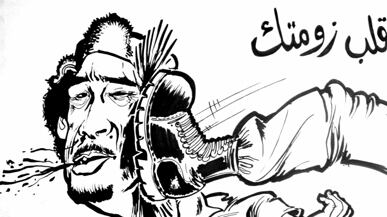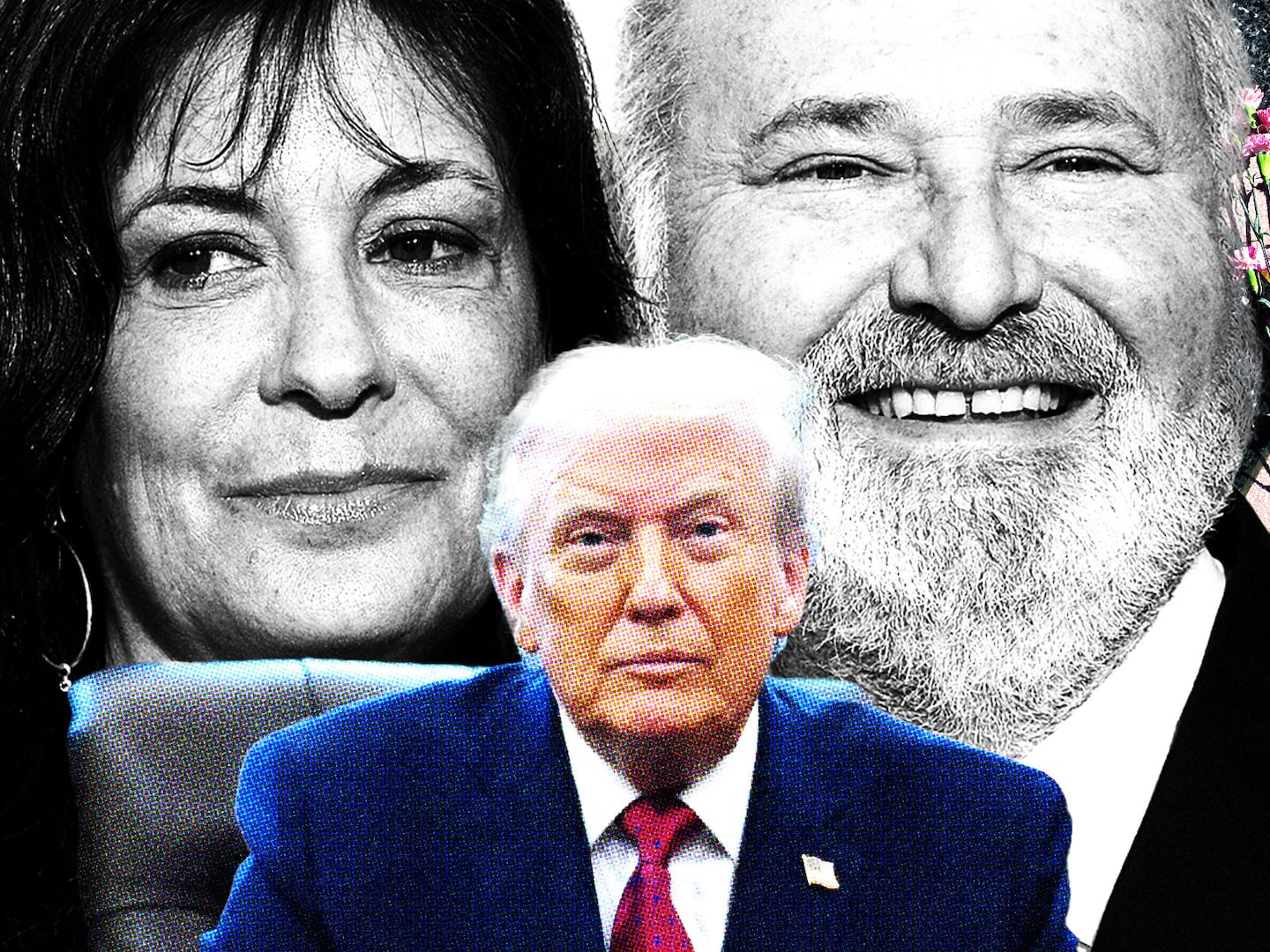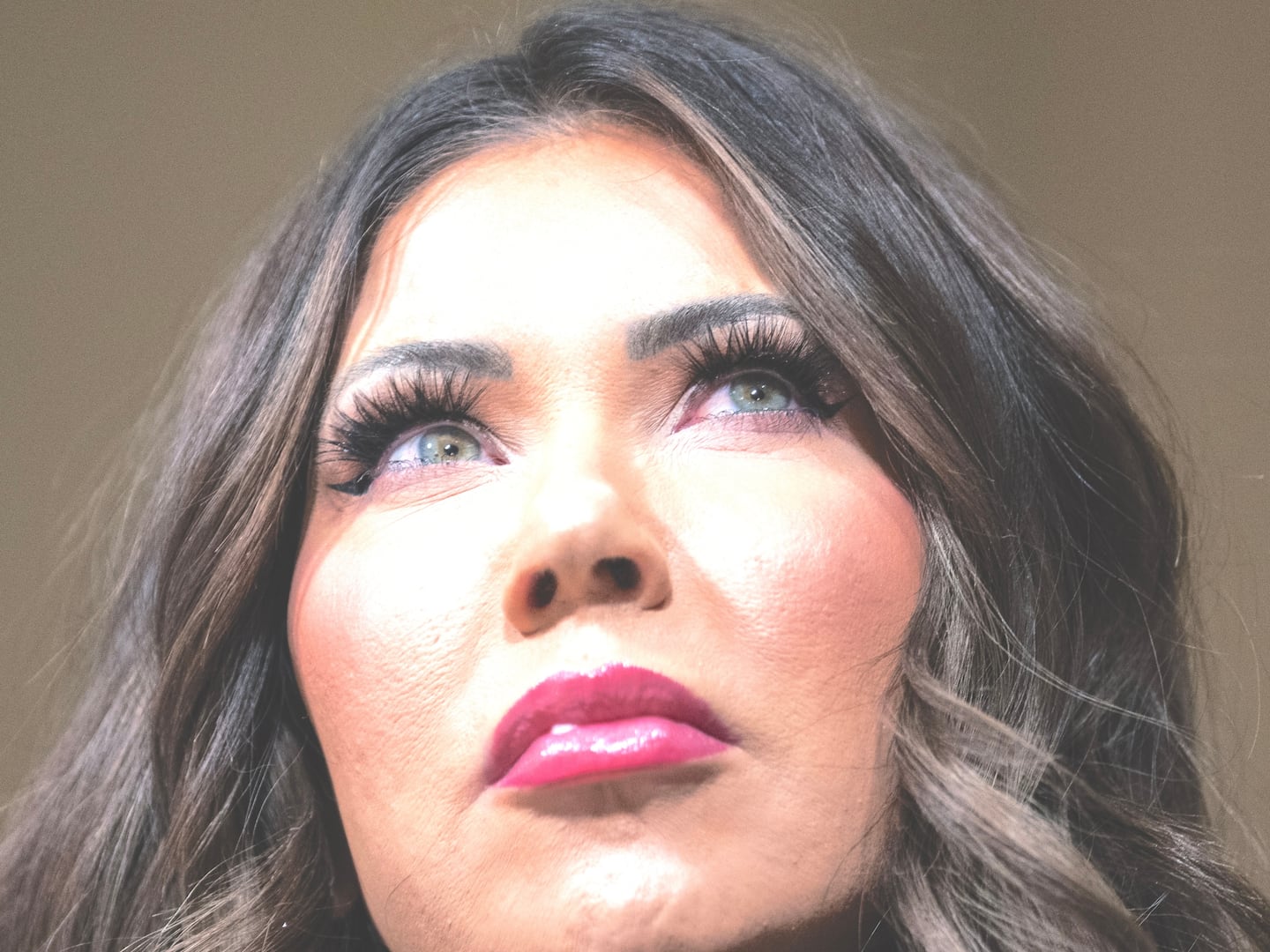For four decades Gaddafi kept the media under tight control. Now with a new, robust newspaper and a radio station, the country’s long-stifled journalists are reveling in free speech and joining the protests, reports Babak Dehghanpisheh. Plus, full coverage of Libya.
Mohammed Munafi, 43, was a media professor at the University of Ghar Younis in Benghazi, Libya’s second-largest city, for 14 years but he knew he was living a lie. “We never did any real journalism,” he says, waving his hands dismissively. “There was no criticism. Everything was controlled.” The biggest paper in town was the Benghazi News, a government-controlled rag that ran sanitized news stories as well as quotes from the Green Book written by the Leader of the Great First of September Revolution, Muammar Gaddafi. Here’s one sample nugget of wisdom from that infamous book: “Man’s freedom is lacking if somebody else controls what he needs.” Perhaps the great revolutionary leader didn’t have a sense of irony. But the vast majority of Libyans weren’t duped by him or the state media. “It was all garbage,” says Munafi, a soft-spoken father of four. “My hope, my wish, my dream was to own a real newspaper.”

When anti-government protests kicked off on February 17, Munafi eagerly joined the fray. And he stood his ground when Gaddafi’s security forces opened fire on the crowds in Benghazi. “The bullets were passing very close,” he says, slicing his hand close to his body to show the distance. “There were people around me who were shot. I helped carry the wounded.” Six days after that first protest, on February 23, Munafi oversaw the production and printing of the country’s first independent newspaper in 42 years, called, simply, Libya. “I can’t describe the feeling,” he says with a huge smile.
Like their counterparts in Tunisia and Egypt, ordinary Libyans were the first ones to document their government’s brutal crackdown—on cellphone photos and videos that quickly spread on Facebook and YouTube. But now the country’s long-stifled journalists are also trying to do their part.
“The other day a woman called to say ‘We love Gaddafi’ and we didn’t cut her off. That’s freedom of speech.”
In the first edition of Libya, Munafi penned an article titled “And the sun has risen,” to document the country’s historic transition. Seven thousand copies were printed and all were snatched up within hours. In less than a week, the newspaper, which is funded completely by private donations, has seriously ramped up its operations. There’s now a staff of 62 volunteers cranking out the paper on seven computers. The newsroom is abuzz with journalists arguing and wise-cracking about the day’s copy, and the walls are plastered with satirical cartoons, including one that shows Gaddafi as a two-headed dragon, along with his son Saif al Islam, who has emerged as the threatener in chief on state television in the past two weeks. A recent issue had an article about an infamous 1996 prison massacre that left at least 1,200 people dead, as well as a profile of a protester killed in the recent uprising. There also were large color photos of families at a rally in Benghazi last Friday. “The newspaper has a very important role now,” says Munafi. “It’s distributed throughout ‘Free Libya’ and it brings the people together.”
Journalists in smaller towns in eastern Libya also have risen to the occasion. In the town of Ajdabiya, about 100 miles south of Benghazi, Abdul Munim Mohammed, 35, struggled to prevent Gaddafi’s security forces from shutting down the town’s sole radio station. He and his colleagues hid the essential broadcast equipment when security forces came to raid their offices last week. And they ran their first uncensored broadcast on February 18, only one day after the nationwide protests began. It’s still not a conventional radio station: The man running the admin and finance operations totes a huge Belgian FAL machine gun. But they’re on the air with helpful tips on where to find bread and gas in town, as well as call-in shows to air citizens’ views. “The other day a woman called to say ‘We love Gaddafi’,” Mohammed says with a shrug. “And we didn’t cut her off. That’s freedom of speech.”
Babak Dehghanpisheh was named Newsweek’s Baghdad bureau chief in December 2006. He has been covering Iraq regularly for the past five years.






